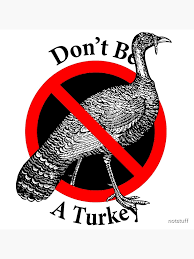
Is AI coming for your job?
Yale University have released the first in what will be a series of updates on the impact of AI on the job market (thanks to Andrew Spurrier Dawes for sharing this).
The first thing to note is that AI has been contributing to huge anxiety about job losses. This is something that is remarked on too by diversity champions The Pipeline’s report on women in work which particularly highlights this amongst young women in the workplace. The Yale report suggests that any impact of AI on the US workforce is likely to materialise in future, and that it hasn’t really been noticeable yet. But the report also observes that there is slow adoption of AI and that this varies a lot by sector. In “sales and related” the expectation of AI usage is significantly lagged by actual adoption. I personally will be surprised if this isn’t very different next time the team at Yale take a look. AI adoption in advertising will grow rapidly in our sector certainly, and we can predict an existential dilemma for certain skills.
What can you do to stay relevant?
Empathy; Creativity; Experience
Empathy.
Empathy is a uniquely human skill and is a difficult one to do well. It requires a real effort to put yourself in someone else’s position emotionally in a truthful way. Very often people default to expressing sympathy. This may be admirable, it is not the same as empathy. We illustrate the difference between sympathy and empathy in our 2020 book Belonging by thinking of cats. Do you have a pet cat? Pet cats like to bring their owners presents. The best present a cat can think of for its owner is one that it would love to receive: a dead bird or mouse. Of course this is horrific for the human involved. That present is based on sympathy (how would I feel in that situation) not empathy. In fact the best empathetic present that cat could give you is to eliminate rodents from your house and garden with no evidence. The very opposite of a sympathetic gift.
Team leaders need to demonstrate empathy for their team, but you also need to be empathetic to colleagues and crucially to your leaders and managers. It is perhaps a too well guarded open secret that your boss is a person too. And, so is your client, your customer, your target market and your annoying yet very human enemy in the workplace if you have one.
Whilst GenAI is very good at aping sympathy, so many people now are using it as a therapist, coach or counsellor, it cannot and will not deliver real empathy.
Creativity
AI might think it is creative, but it isn’t as creative as you are.
Creativity is essential to making a step change in business. Incremental gains are important, and will increasingly be delivered by AI tools. Step change is something where human input makes a real difference. Certainly, you can ask GenAI to give you 10, 100 or 1000 suggestions for a new solution to a business problem but a human being is necessary to join the dots and pick out a new pattern for success.
Don’t be a turkey. Both Nassim Taleb and Bertrand Russell wrote of the perils of inductive thinking where you base predictions on what has happened in the past. The Russell “turkey illusion” shows how a turkey’s positive experiences of being fed slightly better every day lead it to believe that its future will be the same only to be slaughtered on Christmas Eve. Taleb uses the same concept in The Black Swan. Classic econometricians mainly don’t like this parable, but imagining the impact of Christmas (or in Taleb’s case Thanksgiving) is a very human skill.
And finally, and above all, experience.
No system can substitute for your very real experience. It can seem as though the industry is going through a real reset, where experience is redundant in the face of new challenges. But if you still have someone with long experience in your organisation, my advice is to lean on them heavily. In the existential times that advertising is in, the experience of those who have faced crisis before is irreplaceable.
Put yourself in situations where you will experience new and important lessons for how to navigate the workplace. You don’t have to jump out of your comfort zone in an extreme way, but you do need to explore the outskirts and push into new territory. With this experience you can build a future in the new times ahead.